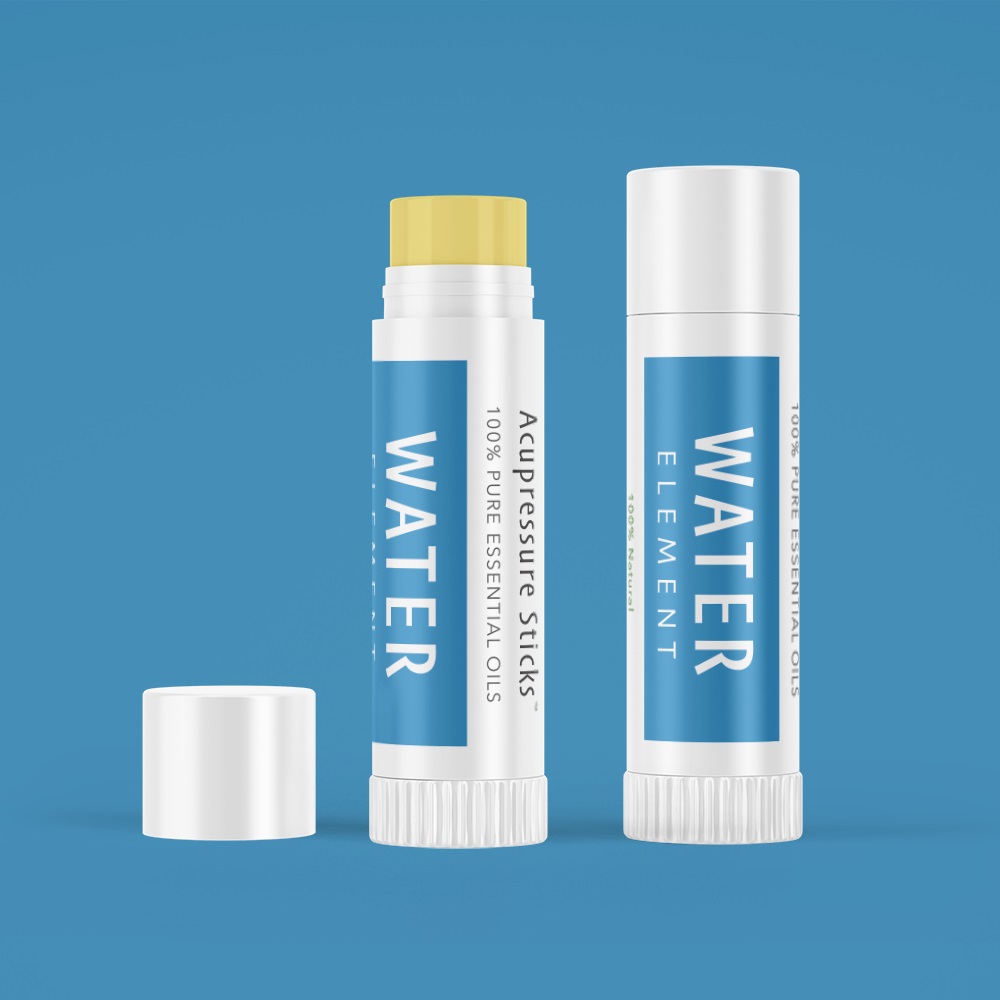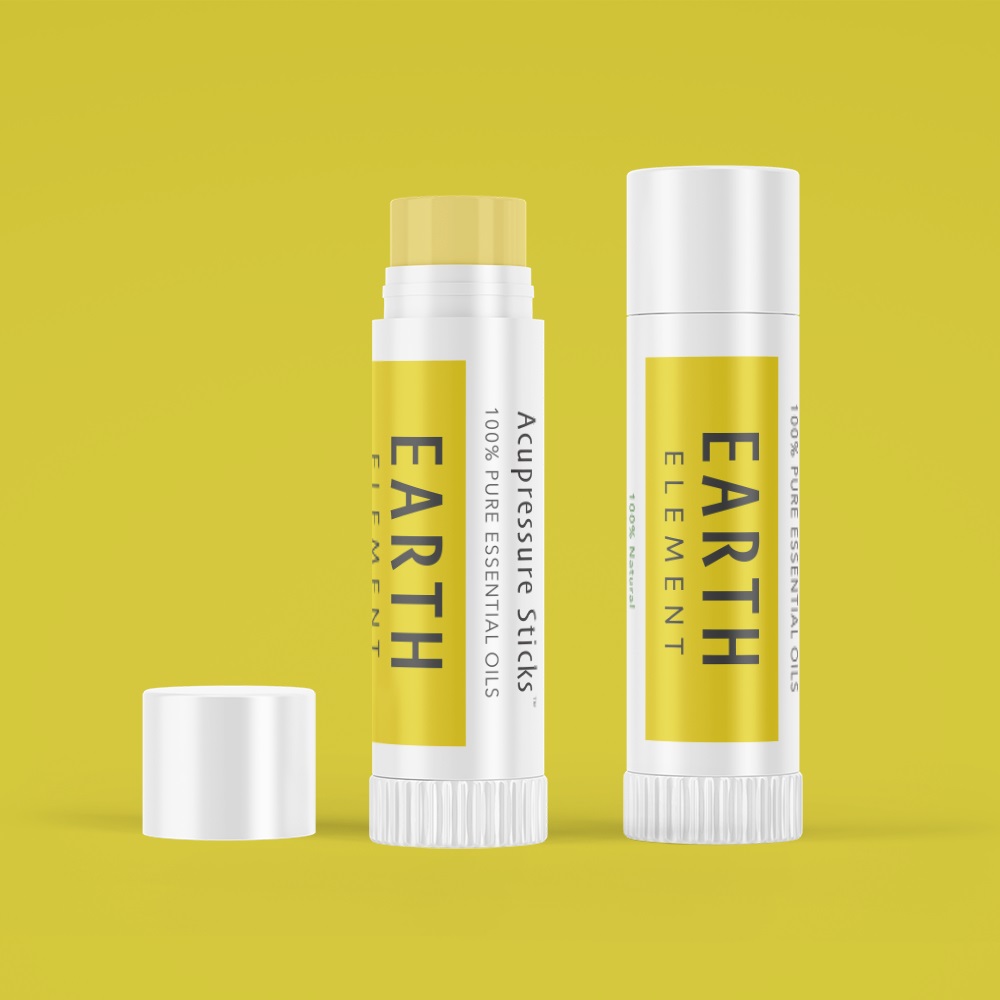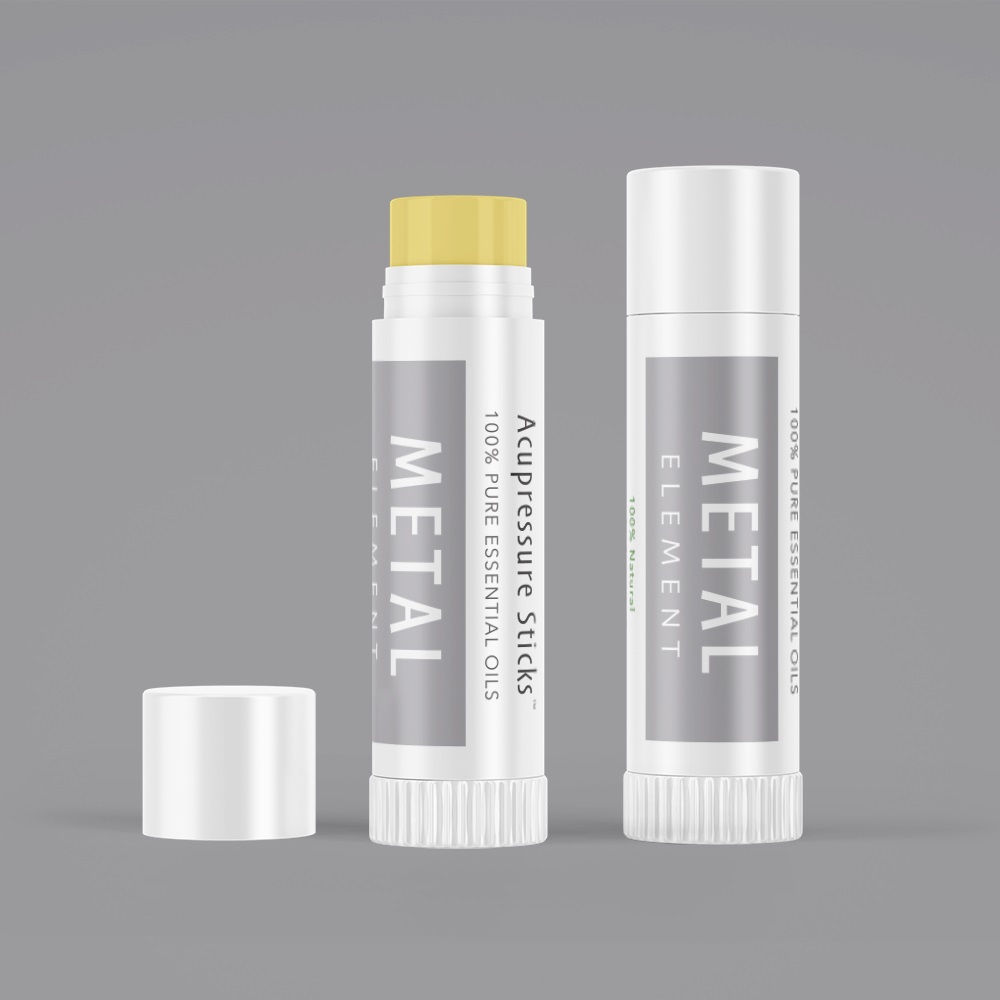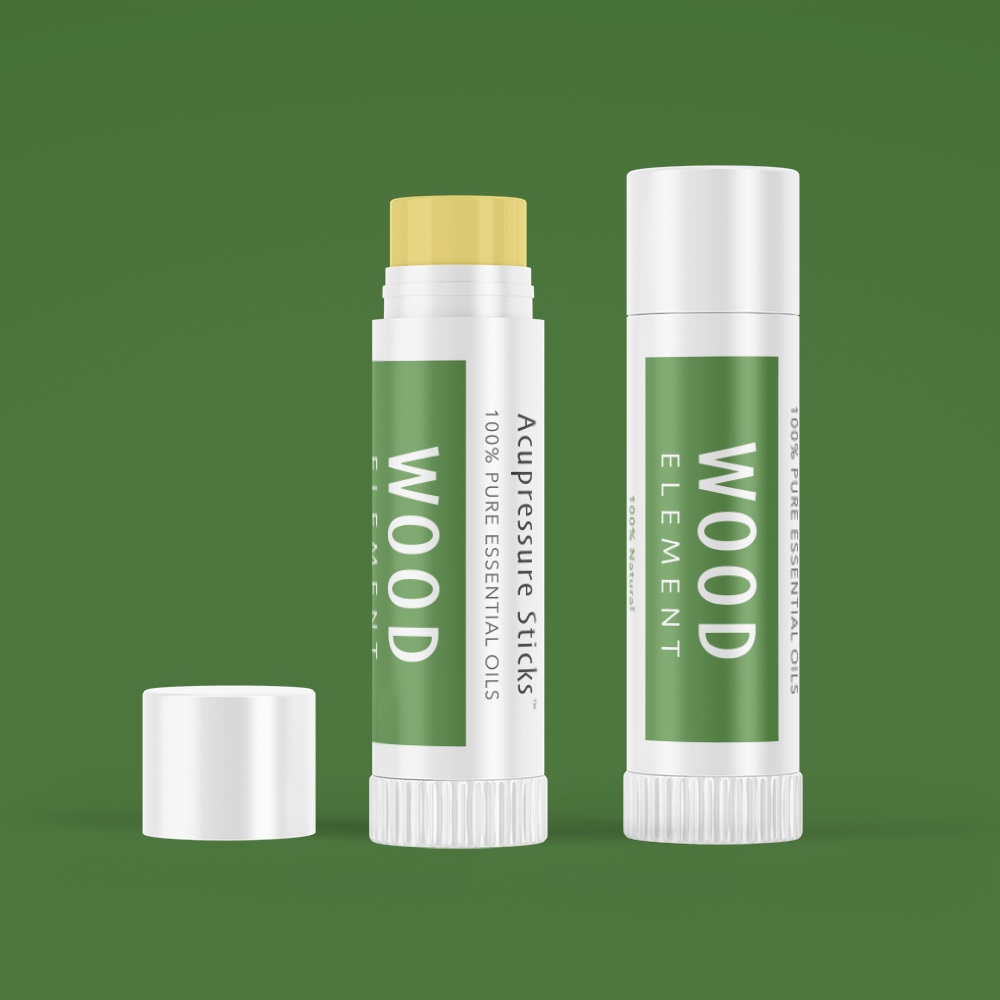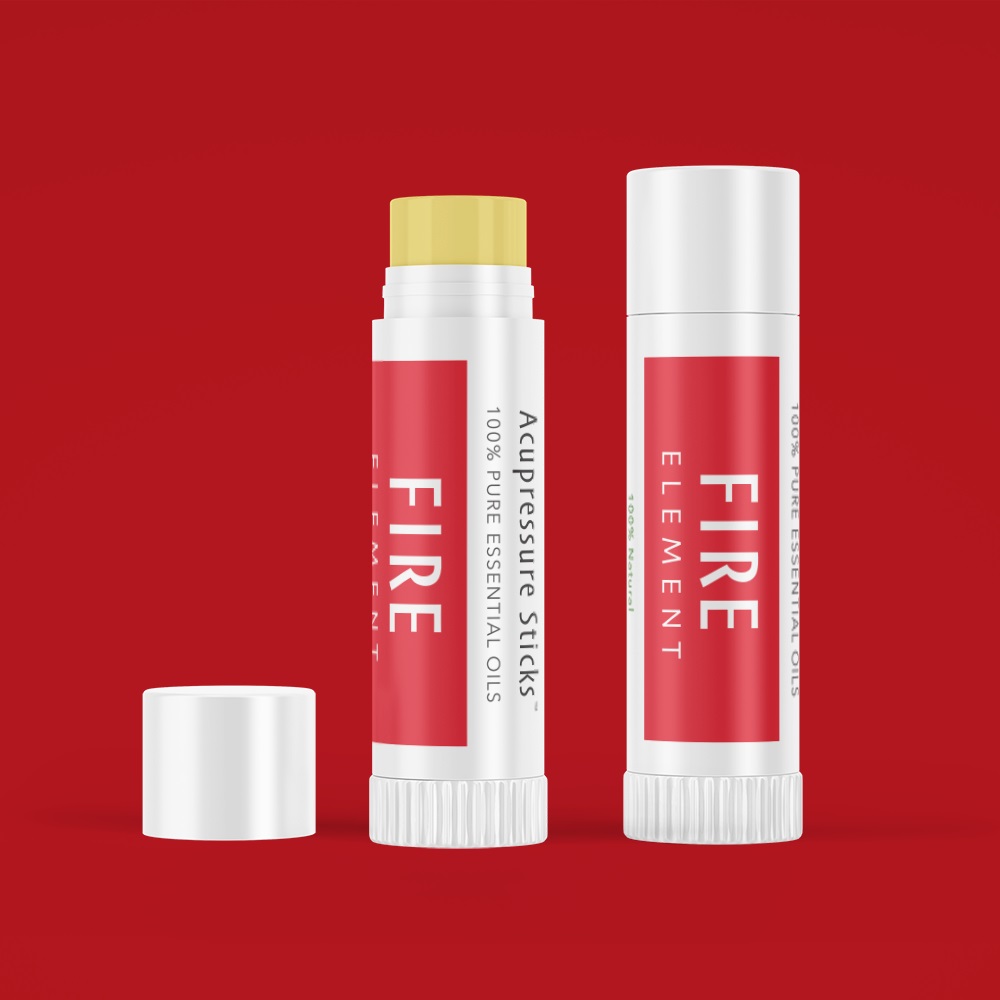Anxiety
Anxiety-Panic Attacks and Chinese Medicine
There is not one set treatment for anxiety according to Traditional Chinese Medicine, but Kidney Deficiency is typically part of the pattern of imbalance. Differentiating the many types of anxiety that are possible results in targeted, effective self-care. It is normal to feel anxious before a significant event such as an exam, public speaking, or first date; however, anxiety that dominate people's lives are a clear sign of imbalance according to Chinese medicine. It is always better to practice preventative mental health care and utilize natural therapy before the condition has become a chronic. However, even if the condition has been developing over a number of years natural medicine will work, will just take longer than if you had caught it early on. For best outcomes using self-care, combine associated Aroma Acu-Sticks® to acupuncture points, topical remedies, and good lifestyle practices.
![]()
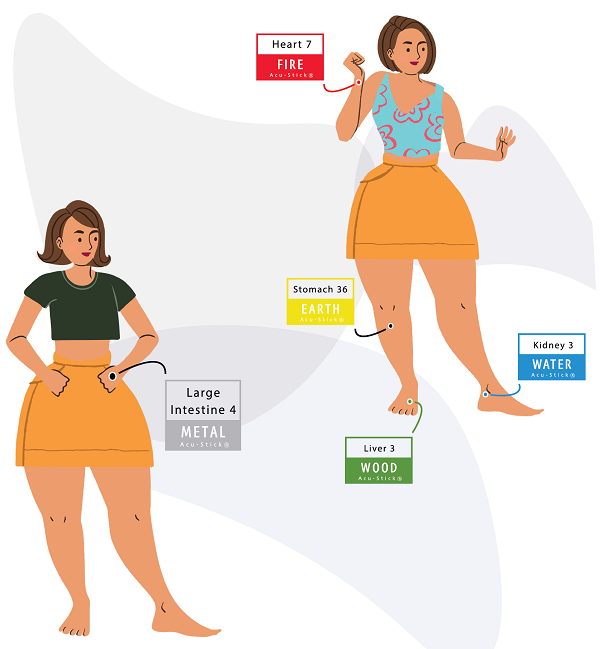
Aroma Acu-Therapy™ for Anxiety
Kidney 3
Apply the Water Element Aroma Acu-Stick® to activate Acupressure Point KI 3
Why? Acu-point Kidney 3 is the Source point of the Kidney energetic organ system that is part of the Water Element of Chinese medicine and relates to the emotion of fear.
Apply the Earth Element Aroma Acu-Stick® to activate Acupressure Point ST 36
Why? Acu-point Stomach 36 helps to calm the mind and lessen recurring thoughts as the Earth Element associated emotion is worry.
Apply the Metal Element Aroma Acu-Stick® to activate Acupressure Point LU 9
Why? Acu-point Lung 9 is the Source Point of the Lung energetic organ system that is part of the Metal Element responsible for positive personal boundaries and self esteem.
Apply the Wood Element Aroma Acu-Stick® to activate Acupressure Point LV 3
Why? Acu-point Liver 3 soothes Liver Qi Congestion that can make one feel stuck and unable to go with the flow.
Heart 7
Apply the Fire Element Aroma Acu-Stick® to activate Acupressure Point HT 7
Why? Acu-point Heart 7 is the source point for the Heart energetic organ system and calms the Shen-Mind.
Related Articles:
- How Aroma Acupressure Works
- Aroma Acu-therapy® Online Course
- Specific Acu-Point Locations
- The Five Elements of Chinese Medicine
Anxiety Constitutional Patterns in Chinese Medicine According to Symptoms
It is not uncommon for anxiety to present with more than one of these patterns of imbalance since it is a chronic condition that has developed over many years and likely affected multiple energetic organ systems.
Kidney Deficiency and Anxiety
Kidney Deficiency is most common with panic disorder and phobias. Fear is related to the Water Element and Kidney function in Chinese medicine. Panic disorder is often accompanied by repeated episodes of intense fear that strike often and without warning. The Heart is the seat of emotions and an imbalance of the Fire Element would be indicated as well. Physical symptoms may include:
- Heart palpitations
- Shortness of breath
- Dizziness
- Digestive distress
- Fear of dying
Phobias are typically based on irrational fears of specific situations.
Kidney-Spleen Imbalances and Anxiety
The Spleen system is part of the Earth Element in Chinese medicine and is associated with the following indications:
- Anxiety with digestive problems
- Worry
- Obsessive thoughts
OCD involves repeated, unwanted thoughts or compulsive behaviors; anxiety that is associated with excessive worry or OCD symptoms would relate to Spleen Qi Deficiency
Acupressure Point Combination Strategy:
- Apply the Earth Element Acupressure Stick to Acupressure point Spleen 3
- Apply the Fire Element Acupressure Stick to Acupressure Point Yin Tang
- Apply the Fire Element Acupressure Stick to Acupressure Point Heart 7
![]()
Kidney-Lung Imbalances and Anxiety
The Lung system is related to self esteem in the ability to maintain positive personal boundaries. In cases of PTSD, those personal boundaries have often been assaulted and broken in the most traumatic way, especially in cases of rape, criminal assault, and child abuse. After experiencing natural disasters, acts of terrorism, or war, people are often struck with a persisting feeling of loss and grief that they cannot break through. Anxiety related to this pattern would be considered a Metal Element disorder and may include the following symptoms:
- The Fear of Dying
- Unresolved Grief
- Regular Crying Fits
Acupressure Point Combination Strategy:
- Apply the Metal Element Acupressure Stick to acupressure point Lung 9 and
- Apply the Water Element Acupressure Stick with Essential Oils to Acupressure point KI 3
- Apply the Fire Element Acupressure Stick to Acupressure Point Yin Tang and
- Apply the Fire Element Acupressure Stick to Acupressure Point Heart 7
![]()
Kidney-Liver Imbalances and Anxiety
Anxiety resulting from chronic stress is addressed with herbs that soothe the Liver. The Liver system is related to anger, frustration, and feelings of being constrained and would include symptoms such as:
- Feeling stuck
- Stress induced anxiety
- Anxiety with depression
In Chinese medicine, depression is often seen as anger turned inward. Over time, anxiety disorders will affect the Qi of the Liver causing Stagnation according to Chinese medicine.
Acupressure Point Combination Strategy:
- Apply the Wood Element Acupressure Stick to Acupressure Point LV 3
- Apply the Water Element Acupressure Stick to Acupressure point KI 3
- Apply the Fire Element Acupressure Stick to Acupressure Point Yin Tang and
- Apply the Fire Element Acupressure Stick to Acupressure Point Heart 7
![]()
Anxiety Panic Disorder and Chinese Medical Theory
In Chinese medicine, fear relates to the Water Element and the Kidney energetic organ system. Each of the organs is assigned an emotion and the Heart ‘houses the mind’ in Chinese medicine; it is the origin at the center of all emotions. The Spleen is related to obsessing and over thinking; the Kidney is related to fear and phobias; the Lung is related to grief, self esteem, and the inability to let go; the Liver is related to anger, frustration and feeling stuck. Imbalances in any or all of the energetic organ systems can be part of the imbalance depending on how anxiety manifests in a particular individual. Kidney Deficiency is almost always a core issue with anxiety.
Anxiety is a normal response to life stresses unless it becomes a chronic illness that fill people's lives with overwhelming thoughts and fear that are chronic, unremitting, and can grow progressively worse. Tormented by panic attacks, obsessive thoughts, flashbacks of traumatic events, nightmares, or countless frightening physical symptoms, some people with anxiety disorders even become housebound.
Meditation and Anxiety Relief
We provide this free self-care guided meditation based on ancient Taoist practices for you to learn how to meditate; a great tool for those new to meditation. Long-term training in mindfulness meditation has been found to improve cognitive processes that subsequently improve a wide spectrum of health outcomes (Davidson et al., 2003; Grossman et al., 2004; Grant and Rainville, 2009; Garland et al., 2010a, b). A recent scientific study concluded, "The present findings verify that brief mindfulness meditation training can reliably attenuate anxiety, even in the absence of a mood-inducing manipulation or a generalized anxiety disorder." (https://www.ncbi.nlm.nih.gov/pmc/articles/PMC4040088/)
Anxiety and Western Medicine
According to Chinese medicine, anxiety is often classified as a 'fear' response that is due to a Water Element imbalance and Kidney Deficiencies. Anxiety disorders, as a group, are the most common mental illness in America. More than 19 million American adults are affected by these debilitating illnesses each year. Children and adolescents can also develop anxiety disorders. Western medical treatments have been largely developed through research conducted by NIMH and other research institutions. They help many people with anxiety disorders and often combine medication and specific types of psychotherapy. A number of medications that were originally approved for treating depression have been found to be effective for anxiety disorders as well. Some of the newest of these antidepressants are called selective serotonin re-uptake inhibitors (SSRIs). Other anti-anxiety medications include groups of drugs called benzodiazepines and beta-blockers. If one medication is not effective, others are often tried. New medications are currently under development to treat anxiety symptoms. While the medicines are important in stabilizing the emotions of those who are non-functioning, many feel that the medicines change their personalities and suppress their every day emotions and feelings.
Two clinically proven effective forms of psychotherapy used to treat anxiety disorders are behavioral therapy and cognitive-behavioral therapy. Behavioral therapy focuses on changing specific actions and uses several techniques to stop unwanted behaviors. In addition to the behavioral therapy techniques, cognitive-behavioral therapy teaches patients to understand and change their thinking patterns so they can react differently to the situations that cause them anxiety. Unfortunately, this type of treatment is almost exclusively reserved for the rich as our modern culture in the US does not provide mental health care and insurance companies rarely cover this type of costly treatment fully.
![]()
Common Types of Anxiety
It is common for an anxiety disorder to accompany depression, eating disorders, substance abuse, or another anxiety disorder. Anxiety disorders can also co-exist with illnesses such as cancer or heart disease. In such instances, the accompanying disorders can also be addressed with herbal therapy. Here are some of the more common disorders:
Panic Disorder - Repeated episodes of intense fear that strike often and without warning. Physical symptoms include chest pain, heart palpitations, shortness of breath, dizziness, abdominal distress, feelings of unreality, and fear of dying. Rescue Remedy can be purchased at any good health food store to be used for acute panic attacks until the tonic herbs are able to affect the root organ level imbalances.
Obsessive-Compulsive Disorder - Repeated, unwanted thoughts or compulsive behaviors that seem impossible to stop or control. This is most commonly associated with an Earth Element imbalance.
Post-Traumatic Stress Disorder - Persistent symptoms that occur after experiencing or witnessing a traumatic event such as a criminal assault, war, child abuse, natural or human-caused disasters, or crashes. Nightmares, flashbacks, numbing of emotions, depression, and feeling angry, irritable or distracted and being easily startled are common. Family members of victims can also develop this disorder.
Phobias - Two major types of phobias are social phobia and specific phobia. People with social phobia have an overwhelming and disabling fear of scrutiny, embarrassment, or humiliation in social situations, which leads to avoidance of many potentially pleasurable and meaningful activities. People with specific phobia experience extreme, disabling, and irrational fear of something that poses little or no actual danger; the fear leads to avoidance of objects or situations and can cause people to limit their lives unnecessarily.
Generalized Anxiety Disorder - Constant, exaggerated worrisome thoughts and tension about everyday routine life events and activities, lasting at least six months. Almost always anticipating the worst even though there is little reason to expect it; accompanied by physical symptoms, such as fatigue, trembling, muscle tension, headache, or nausea.
Because true anxiety disorder is often rooted in Kidney Deficiency according to Chinese medicine, it is not typically a quick fix. If it were a simple matter of blocked energy that sometimes occurs with pain syndromes, or an exterior pathogenic invasion such as a cold or upset stomach, herbs might have a quick healing potential as they often do with acute conditions; however, it takes time to rebuild Kidney energy and vitality once it is depleted. You will want to devote at least 6-8 months utilizing herbal therapy and meditation to fully address anxiety naturally.
![]()
Acupressure Impact on Self-Rated Pain and Anxiety Scores
Acupuncture or Acupressure on Yintang (EX-HN 3) for Anxiety: A Preliminary Review
The effect of acupressure on pain, anxiety, and the physiological indexes of patients with cancer
Acupressure on Anxiety and Sleep Quality After Cardiac Surgery: A Randomized Controlled Trial
This information has not been evaluated by the Food and Drug Administration. This information is not intended to diagnose, treat, cure, or prevent any disease.

